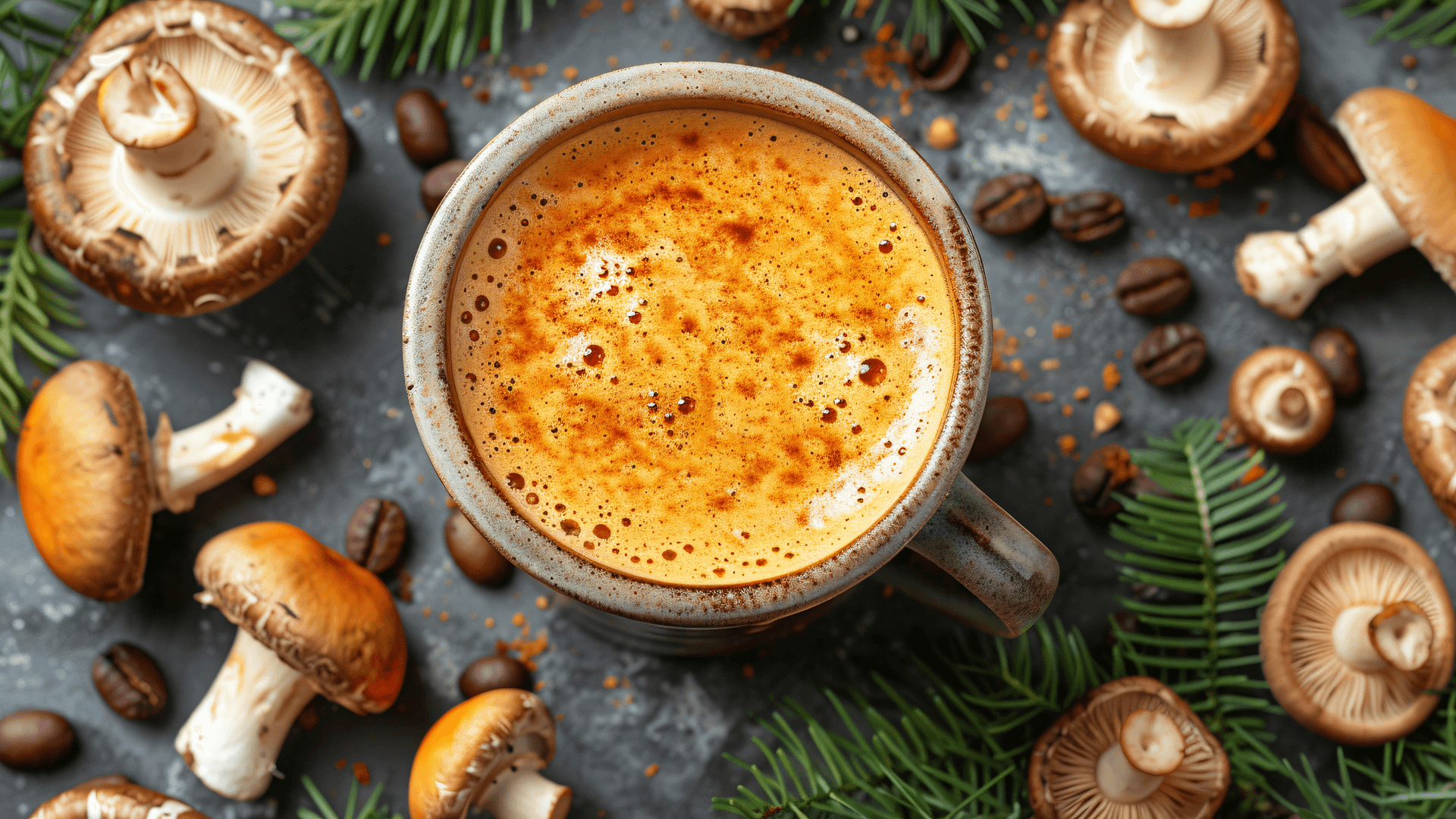Supercharge Your Day |
There comes a certain time when you don’t feel as young as you used to. You start to feel that time is catching up with you—and you’re unable to perform certain tasks with the same vigor as you once did.
You start to feel that you’re getting old before your time, with less energy and resilience than you had in your youth.
This feeling can come as early as your thirties as the testosterone levels in your body start to drop—and you don’t quite feel like yourself.
This is a normal part of the aging process. Some are quite happy to accept it and take what comes, whereas others fight back against it to turn the tide.
There are certainly plenty of health benefits of helping your body to produce testosterone— and getting your hormonal health in check should be a priority.
One of the best ways of getting your T levels back on track is through diet—and we’re going to look at the link between testosterone and diet right here.
But, first…
What is testosterone?
Testosterone, often referred to as the sex hormone, plays a vital role in many bodily functions in both men and women.
But, it’s essential for developing male characteristics, including sperm production, muscle mass and muscle growth, sex drive, and bone strength.
It’s produced in the testicles in males and the ovaries in females. Healthy testosterone levels in adult males are between 265 and 923 nanograms per deciliter of testosterone (ng/dL) in the blood.
As it plays a vital role in health characteristics, a drop in testosterone levels can lead to health issues.
Testosterone levels decrease at a rate of around 1% each year from the age of 30, and this is why you might suffer from problems that you didn’t when you were younger. These can range from sleep disruption to a lack of energy or even a loss of sex drive.
It’s essential to keep your testosterone levels well-balanced if you want to avoid any issues that can result from low testosterone levels.
The good news is that you don’t have to just accept it. There are things you can do to achieve healthy testosterone levels, and they don’t involve risky methods such as testosterone replacement therapy, which can have adverse effects on your health.
What impacts testosterone levels?
Many factors can cause your testosterone levels to drop. It can be due to a medical condition or your genetic makeup, but the vast majority of reasons are due to your lifestyle. In other words, if you don’t look after your health, your body will give in to aging, and your testosterone levels will drop.
Things that can cause testosterone deficiency include…
- Gaining weight
- Lack of sleep
- Too much alcohol
- Smoking
- Drug abuse
- Lack of exercise
- Poor food choices
- Stress
- DIET
A lack of exercise and a poor diet are two main reasons testosterone levels will decline.
Living a sedentary lifestyle and eating a high-fat diet full of processed foods which are high in calories is likely to cause weight gain and other potentially harmful medical issues, which will lead to an accelerated decline in testosterone levels.
The link between nutrition and testosterone explained
Scientific studies have shown that there is a direct link between low testosterone levels and poor nutrition.
Making the wrong food choices can have a devastating effect when it comes to your t levels. So it’s a good idea to arm yourself with the correct knowledge—and do something about it now.
How can diet impact your testosterone levels?
One of the biggest factors of low testosterone levels is obesity. The bigger your excess body fat, the lower your t levels are likely to be—so it’s essential that you adopt healthy eating habits if you want to keep levels up.
Whether your diet is healthy or not will have a significant impact on your testosterone levels.
For example, high-fat diets packed with ultra-processed foods that offer little nutritional value contribute to low testosterone. On the flip side, if you eat a balanced mix of whole foods packed with essential nutrients, you’re likely to keep your t levels in the green.
There are certain vitamins and minerals which can help to support your testosterone levels. These include zinc, vitamin D, magnesium, and omega-3 fatty acids, which are important for maintaining healthy testosterone levels, as well as supporting your general health.
The link between keeping yourself in good health through good nutrition and diet is very clear. By making the correct food choices, you’ll steer your body in the right direction when it comes to your hormonal health.
Maintaining a diet that includes a variety of nutrient-dense foods is essential for supporting healthy testosterone levels.

What foods can boost your testosterone levels?
Foods that can help boost testosterone levels and support your overall health, include…
- Oysters: These are high in zinc, which is important for testosterone production
- Leafy green vegetables: They are high in magnesium, and great for helping to raise t levels.
- Fatty fish: Omega-3 fatty acids are huge health boosters and can help with hormone production.
- Eggs: Protein-packed and containing aspartic acid, an amino acid that helps to stimulate testosterone production
- Honey: Can help to raise nitric oxide levels, and improve testosterone production
- Avocados: High in healthy fat and magnesium, they can help to raise t levels.
- Berries: Any food which is high in flavonoid antioxidants can help with testosterone production. Cherries and pomegranates should be high on your list
Read: Our essential rundown of foods that boost testosterone levels for extra nutritional tips to get your ‘t in the green’.
How to boost testosterone levels: top tips
There are simple things you can do to help boost testosterone levels and take back control of your health—and we’re going to tell you all about them right now.
Lifestyle changes
One of the most important things to realize is that if you live a healthy lifestyle, your health will be in better shape.
If you make the wrong choices regarding your lifestyle and to improve your health, you’re likely to be bitterly disappointed.
Working with rather than against your body is the best way forward. This doesn’t mean you have to make significant changes, but certain factors will directly impact testosterone production and need to be addressed if you don’t want your levels to decrease.
Get plenty of sleep
If you want to take control of your health, getting at least seven hours of quality sleep each night is vital.
If you’re having trouble sleeping, try going to bed a bit earlier, turning off any noisy distractions such as mobile phone alerts—and keep the room as dark as possible.
Go out in the daylight

Lower testosterone levels can occur when you don't get enough daylight. Unless you’re particularly nocturnal, you should get out as much as possible during the day, especially if the sun is out.
Wear the appropriate amount of sunscreen if it’s hot, but a natural dose of vitamin D from the sun’s rays will help keep those t levels in check.
Reduce stress levels
If you lead a busy life, managing your stress levels can be challenging, but the less stress your body endures, the higher your t levels will likely be.
The more stress you have, the higher your cortisol levels will be, which will have a direct effect on testosterone.
Reducing stress might mean managing your time better or taking time out each day to do something you enjoy. Make the right changes or get the help you need to tackle your stress—and you could see a boost in your t levels.
Reduce your alcohol consumption
Certain things you may be doing will negatively affect testosterone levels , and if you want to raise your body's testosterone production, now’s a great time to ditch these.
Heavy alcohol consumption can reduce testosterone and lead to health complications such as low sperm production and heart disease.
In fact, 2023 research suggests that heavy alcohol consumption causes lower testosterone levels in males. So if you’re more than a light drinker, it’s a good idea to cut it down.
Exercise more often
Keeping active is essential for weight management and letting your brain know that you do not want to give in to the signs of aging just yet.
Anything from 20 minutes of upward jogging each day will help boost hormone levels. But if you want to increase hormone levels seriously, try resistance training or high-intensity interval training.
Supplementation
Your primary source of nutrition should come from whole foods, but it’s a good idea to supplement, too, to ensure you have enough testosterone-boosting nutrients in your system.
Supplements that have been shown to be especially useful for increasing testosterone levels naturally include B vitamins, vitamin D, and zinc supplements.
The power is in your hands…
Increasing your levels of testosterone will give you a reduced risk of many health issues. You have a choice—you can either give in to the natural process of aging and watch your testosterone levels decline—or you can do something about it.
The perfect addition to a healthy diet and good lifestyle choices, TestoPrime is an all-natural testosterone support that can help any man take control of his youthful vitality with a flood of new and natural testosterone.
This powerhouse of a supplement includes essential B vitamins, a healthy dose of vitamin D and zinc, and other essential testosterone-boosting nutrients. Go get some.





